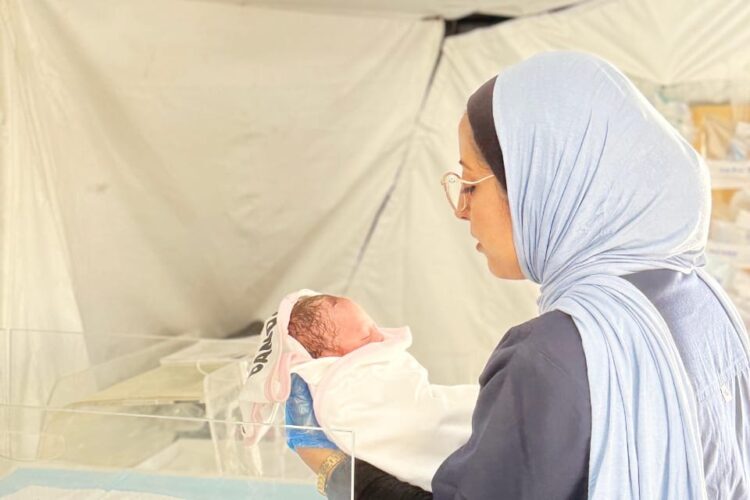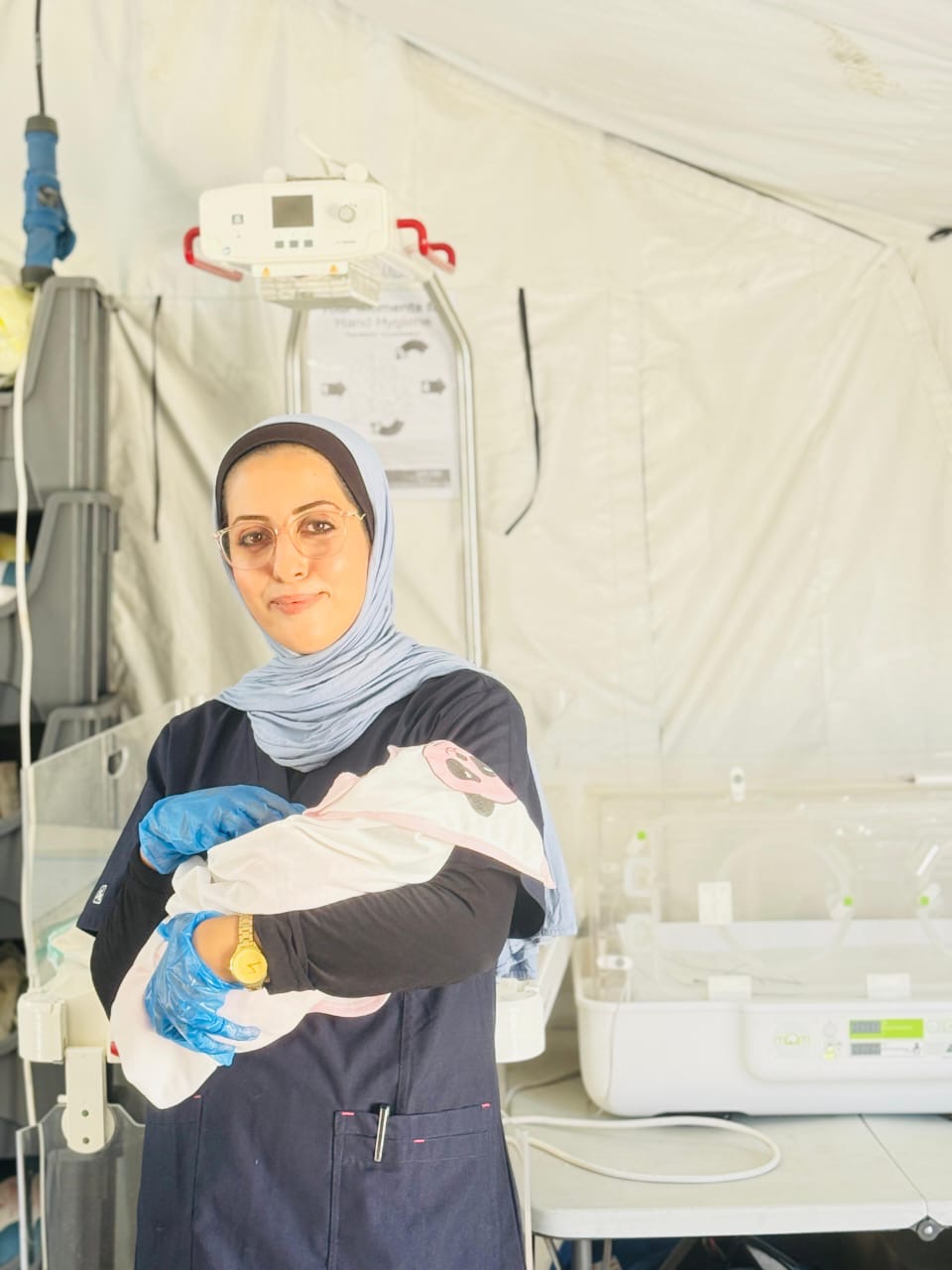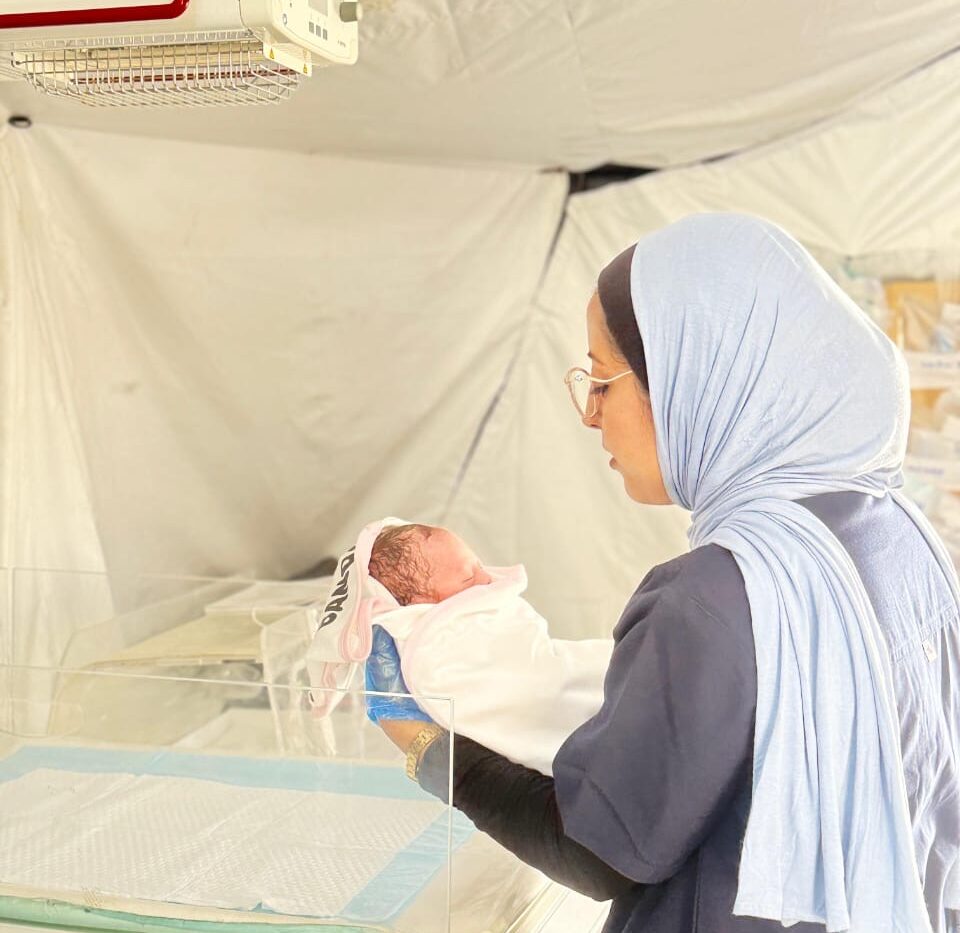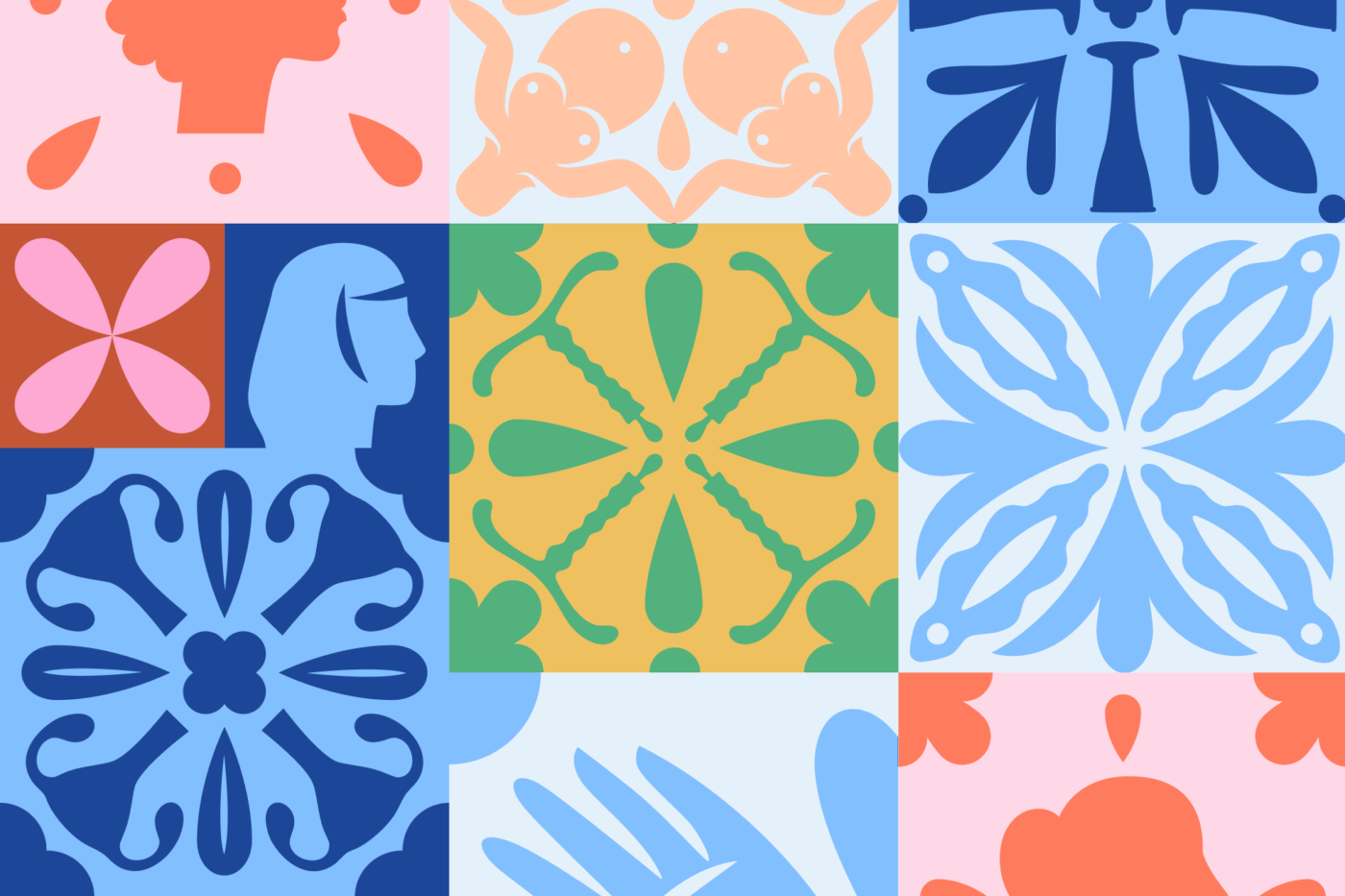A Day in the Life of Renad Salem: A Midwife working in Gaza

Renad Salem is a 24-year-old midwife, born and raised in Gaza, where she now works in a field hospital in the southern Gaza Strip. In May 2025, the World Health Organization warned that only 2,000 hospital beds remained still available across Gaza for a population of two million people, leaving field hospitals to manage the overflow of patients.
As a child, Renad knew she wanted to work in health. The path became clear after her mother’s third birth, when she explained the vital role midwives play in supporting women and newborns. From that moment, Renad knew this was the profession she wanted to pursue.
She graduated with a bachelor’s degree in midwifery from the Islamic University of Gaza in 2022 and began a six-month excellence programme at Al-Shifa Hospital. While she was completing the programme, the conflict erupted. As many of her colleagues began leaving or fleeing south, Renad chose to stay and quickly took on greater responsibility, becoming manager of the first-stage department at Al-Shifa. As attacks on Al-Shifa intensified, Renad began working at Al-Emirati maternity hospital in the south, while her family remained in the north. During this time, she was offered the chance to leave Gaza, but she felt a deep responsibility to care for her people. She could not walk away from the thousands of women and newborns who still needed her.
 By April 2024, many international organisations began setting up field hospitals and work locally. As a midwife, Renad joined the field hospital built and managed by UK-Med, a British humanitarian medical aid charity.
By April 2024, many international organisations began setting up field hospitals and work locally. As a midwife, Renad joined the field hospital built and managed by UK-Med, a British humanitarian medical aid charity.
Now, her daily reality looks very different from before. Midwives, doctors, translators, and staff work under unthinkable stress, with the constant fear of explosions. They feel mentally and physically exhausted. At only 24 years old, the exhaustion shows in her eyes – the toll that saving lives, preventing and reducing suffering, and responding to the need of women, girls, newborns and their communities in the hardest of times.
This is a day in her life:
I used to live in a shelter camp in North Gaza City, about 30 km away from the Nasser Medical Complex, but getting to work was becoming harder every day. Every morning, I would wake up early and walk a long distance to reach the buses or any transport heading south. The journey would take over three and a half hours.
Then, in mid-July I fell from a tuk-tuk that was taking me to work and injured myself, so I decided to move semi-permanently to the south and live with my aunt. That way, I could do my shifts at the hospital without worrying about safety on the road. My family remains in the north, where bombing occurs daily, I have already lost relatives and friends, so being far away is hard for me.
I work two 24-hour shifts a week. Some mornings I spend 8 hours in the outpatient clinic. Where we typically see about 75 patients daily: roughly 35 are there for antenatal care, 20 are seeking gynaecological consultations, and the rest ask for family planning advice. On Sundays, we schedule all the postnatal care and provide vaccinations.
When I finish my shift at the outpatient clinic, I return to my department to finish my shift. We see many patients a day, even more as hospitals continue to be attacked. Sometimes, we even have to open the maternity ward’s extension tent.
 Every day, women and children come to the clinic tired, looking for food and medication – supplies we don’t have, especially since the borders are closed to humanitarian aid. In between patients, I check for medicines and supplies: most antibiotics and pain medication are unavailable, we have no IV bags, and only one incubator for the entire hospital. UNFPA used to be able to help with supplies, but that aid now also struggles to reach us. We try to do our best with what we have. The team is always ready to do the work.
Every day, women and children come to the clinic tired, looking for food and medication – supplies we don’t have, especially since the borders are closed to humanitarian aid. In between patients, I check for medicines and supplies: most antibiotics and pain medication are unavailable, we have no IV bags, and only one incubator for the entire hospital. UNFPA used to be able to help with supplies, but that aid now also struggles to reach us. We try to do our best with what we have. The team is always ready to do the work.
Before the conflict, lunch breaks were a regular part of my day. Now, food is scarce and I feel fortunate if I have a piece of bread to eat during my shift. When my 24 hours ends, I prepare the handover for the next midwife, and go home.
Outside the hospital, I divide my time between searching for scholarships abroad to continue my studies, looking for ways to bring my family closer, and supporting women in the community. I talk with them about caring for their newborns and their own health, including hygiene, which has become difficult to maintain. I try to offer psychological support as well, though I have little time to process my own experiences.
After two years of conflict and trauma, I see that health professionals also need support, yet psychological services are very limited.
My favourite moments are when I go to the beach with my aunt, where I can breathe and think about the future. But even there I do not feel safe. Last week, while sitting on the sand, a bullet passed over our heads. We are holding our hearts and souls in our palms constantly and we hope to survive another day. But after witnessing so much suffering and loss, I can only dream of the day this war ends or the moment I get to leave Gaza. I hope that my hard work pays off, and I can get a scholarship abroad, ideally in the United Kingdom, to specialise in maternal and newborn health.
Holding on to hope through midwifery
Since the conflict began, Renad has carried what she sees as a humanitarian duty to support women. Despite immense challenges, she speaks about her profession with passion and the joy of witnessing new life.
She recalls a recent case of a woman, 35 weeks pregnant, who was hit by shrapnel during an explosion. At the hospital, Renad and a team of midwives, gynaecologists and surgeons worked together to save both the mother and her newborn. A week later, both mother and newborn were healthy enough to go home.
Stories like these motivate Renad to continue her work and drive her search for opportunities to resume her studies abroad. Her dream remains the same: to save and care for mothers and babies every day.
I am proud of the work midwives do, and I want to tell all midwives working in humanitarian contexts to keep going and continue providing the care we have a responsibility to give.

The World Needs One Million More Midwives
Sign the petition and help us collect one million signatures to demand one million more midwives — and the investments needed to make it happen.
